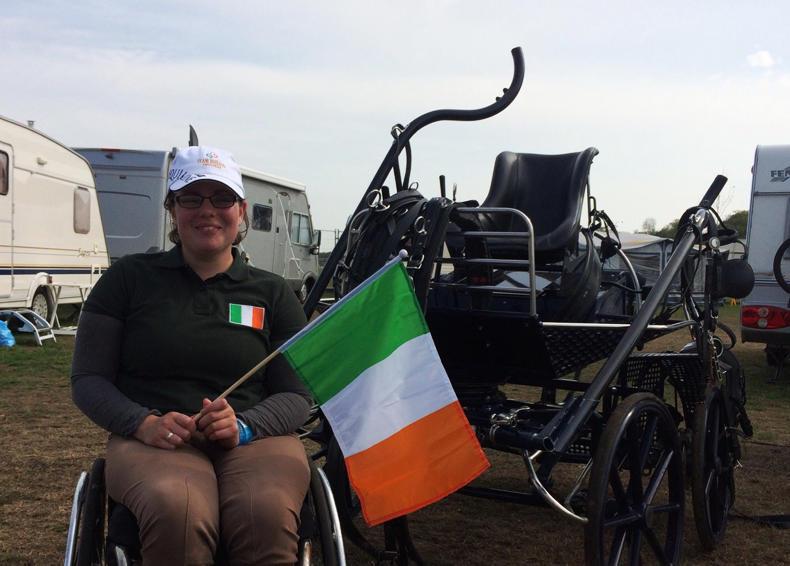AS horse owners, we often develop very strong bonds with our horses and it is unsurprising that our emotional wellbeing is compromised when they are sick or injured.
Just as One Health recognises that human and animal health are intrinsically interconnected, One Welfare is an approach that recognises the same when it comes to welfare and wellbeing.
In 2015, I was loaned a 15-year-old driving Irish Sport Pony called Barnlough Lilly, who I subsequently bought, the first pony I ever owned myself. Together, we competed at the 2016 and 2018 FEI World Championships for Drivers with Disabilities. In 2017, we were All-Ireland Reserve Para Champions and in 2018, we were British Carriage Driving Reserve Para Champions, the highlight of our driving career together.
Last year, we started the season as planned with an event in Essex but just after returning, Lilly went extremely lame and was diagnosed with laminitis. I would imagine my emotions throughout her treatment were representative of what other owner’s experience: sadness at seeing her in pain, fear that she wouldn’t recover, guilt that she got it in the first place.
Underlying condition
While she was being treated for the acute laminitis at the veterinary hospital in UCD, Lilly was diagnosed with Equine Metabolic Syndrome (EMS), an underlying condition that would have caused, or at least strongly contributed to, the laminitis. My concerns were then added to. In addition to fear that the laminitis might recur, I was now worried about her long-term future.
She may have been an older pony in years but certainly not in mind or body and retiring her to pasture would have been risky given her underlying condition. EMS requires specific, although not onerous, management so for me, selling her was out of the question, as I felt I owed it to her to be sure her management is right for her.
I decided that the best thing for her would be to have her close to me but able to be used by somebody else. Having been ridden when she was younger, she has very successfully transitioned back to a riding pony and is being leased by a young rider. She has stayed healthy and sound with no recurrence of laminitis and seems to enjoy being a riding pony just as much (maybe more!) as she did being a driving pony.
Research
Inspired by Lilly, I wanted to try to help other ponies and their owners in similar situations so I started a PhD investigating horse and pony owner education in the School of Veterinary Medicine in UCD.
Part of this involves exploring the horse-human bond within the One Welfare concept. We all know, either as owners ourselves, people who work caring for horses, or even as family members or friends of those two groups, that the emotional impact of our horses being sick, injured or ultimately passing away can be huge and detrimental to our well-being. While there has been research into this aspect of ownership of dogs and cats, the same is lacking when it comes to our equine friends and family members.
We hope that better knowledge of chronic health conditions on the part of owners will help contribute to better welfare for their horses and therefore earlier diagnosis and more effective management and, coming back to the owners, ultimately less emotional distress. This connection and feedback between animal welfare and human wellbeing is at the core of the One Welfare concept.
Funding
As part of this research, World Horse Welfare have awarded funding to look at the emotional impact of common equine clinical conditions on horse owners in Ireland. This research is being carried out by myself (Emma Golding), Aoife Neavyn Neita, a 3rd year vet student, and our supervisors, Dr Vivienne Duggan and Dr Nicola Walshe of the UCD equine vet team.
We are seeking owners to complete a 20-minute survey. Owners of all breeds are welcome but we are especially seeking responses from owners of Connemara Ponies. The survey can be found at https://www.surveymonkey.com/r/27673XH.


 This is a subscriber-only article
This is a subscriber-only article
 It looks like you're browsing in private mode
It looks like you're browsing in private mode





SHARING OPTIONS: